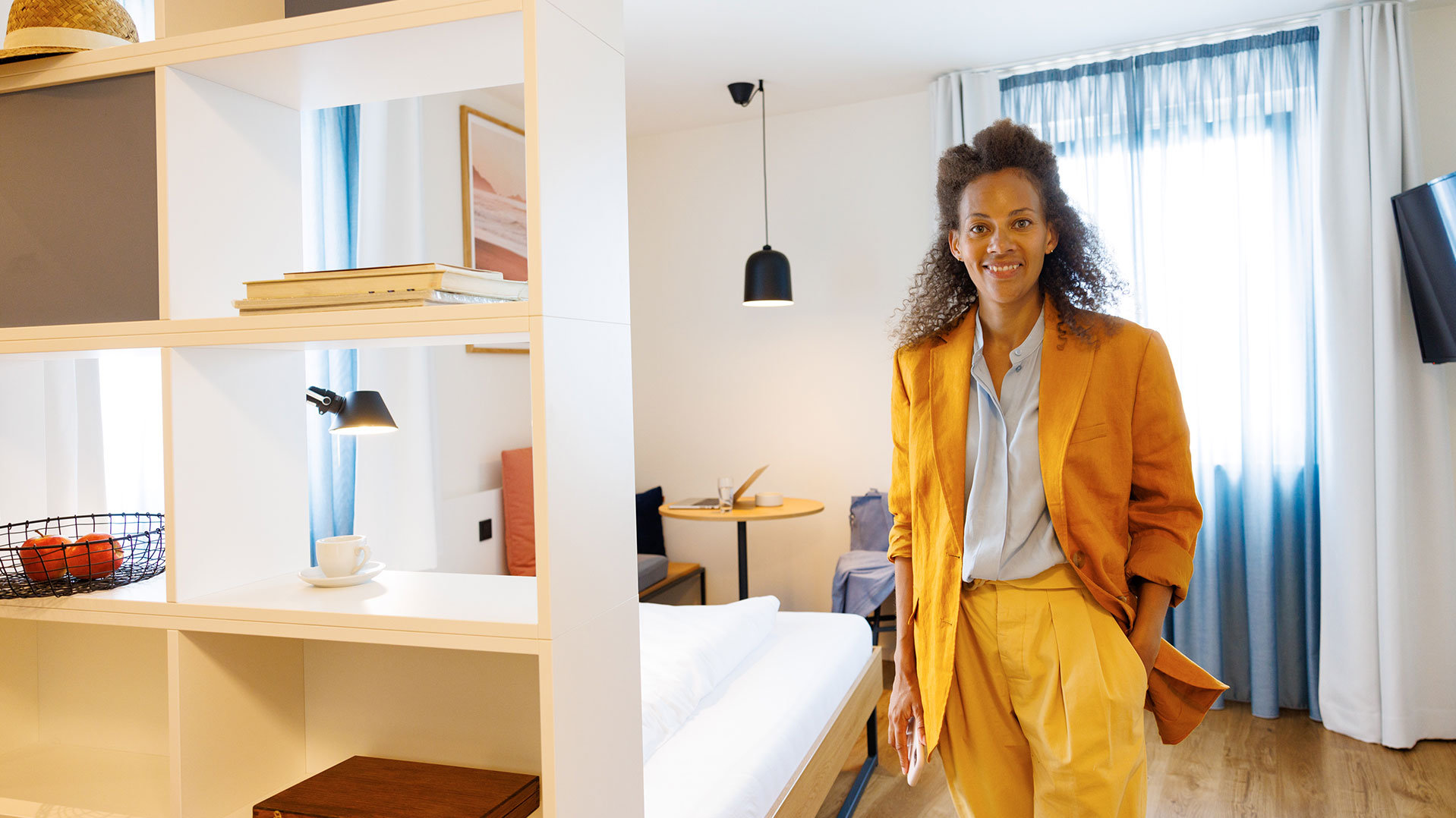Berlin, 27.03.2023 - The serviced apartment brand SMARTments business of project developer GBI has achieved new record figures in the past year 2022 with an occupancy rate of 83.1 percent and an operating profit in the high single-digit million range. "Such a successful record is all the more gratifying because we could not have expected it and there were still significant restrictions due to pandemic conditions in the first quarter of last year," says Burak Ünver, managing director of SMARTments. "When we were subsequently able to operate freely again, the high demand made the record occupancy and profit figures possible."
A total of eight locations of the SMARTments business brand with 1,043 serviced apartments are in operation in Germany and Austria. On average, guests stay for around one month. 76.3 percent of them are long-stay customers, staying a minimum of seven nights and a maximum of six months. "Because of this clear positioning, project employees, consultants, artists, freelancers, but also weekend commuters and people starting a new job book us specifically," says Ünver: "This means we are much more accepted by travelers as a longstay brand than most competitors in the serviced apartment segment."
"In addition to high occupancy, profit has also been optimized through consistent, data-based setting of overnight rates," Ünver adds. "Eight times a day, the algorithms we use check the rates for up to 25 apartment types at the eight locations and adjust them if necessary," explains SMARTments Managing Director Daniel Zawe: "With this yielding, we react, for example, to peaks in local demand or - if this drops again - return to the base prices."
The consistent digitization strategy, which enables very low personnel costs, also has a positive effect on earnings. When a booking is made, access and usage codes are sent to guests' cell phones. This allows them to access the room at night and, if desired, without personal contact. Even before the pandemic, SMARTments business relied on this system, for example through collaborations with technology companies such as hotelbird, apaleo and Straiv by Code2Order. "This relieves SMARTments staff of routine tasks, allowing them to focus on individual guest care and fulfilling special requests," explains Zawe: "This increases their satisfaction and is a decisive factor for the high occupancy rate."
It's not just long-stay travelers who are showing great interest in SMARTments. "Investor preference is also unmistakable," says Burak Ünver: "In 2022, we were able to sell two SMARTments properties that are currently under construction." The SMARTments on Borsigallee in Frankfurt was acquired by a special fund from Aberdeen Standard Investments. The building at Frankfurt Airport went - along with offices in the same property - to an open-ended special fund of HanseMerkur Grundvermögen AG. Investors were also impressed by the brand's resistance to crisis during the pandemic. Ünver: "Thanks to the many long-stay guests, we had an occupancy rate of almost 50 percent even in the depths of the crisis. A value significantly higher than that of the classic hotel industry. Our strategy with a majority of long-term stays proved its worth in this phase."
The good performance is an important basis for the GBI Group's decision to expand further with the SMARTments brand. Not only the two GBI project developments in Frankfurt are currently under construction. The first pure rental property independent of a development of the parent company will also be completed in 2024. In the Hamburg-Mitte district, 160 SMARTments business are being built as part of a neighborhood development by the Hermann Friedrich Bruhn Group. "With the pure operator model, we can significantly accelerate expansion," Ünver said. "And it's in an ideal location with its proximity to Hamburg's city center and excellent public transport links."
The mixed-use approach practiced in the Gateway Gardens airport district is another GBI trademark, combining not only serviced apartments and offices but also, depending on requirements, additional conventional and subsidized housing, daycare centers, senior or assisted living, care services, student housing, hotels, commercial units, social services (e.g., doctor, pharmacy) and local amenities. "This makes neighborhoods livelier and more future-proof," Ünver emphasizes: "And the economic efficiency also improves."

